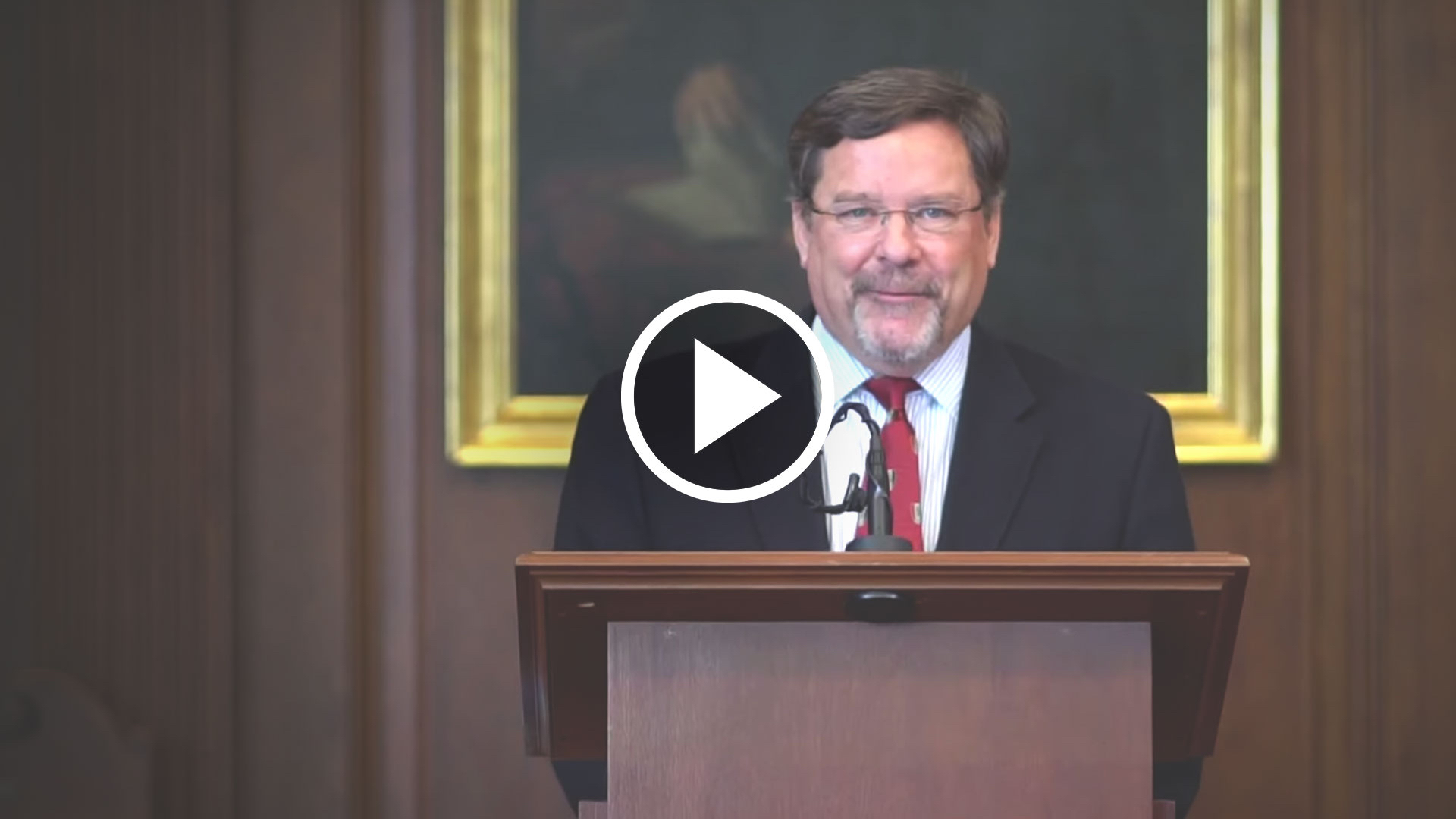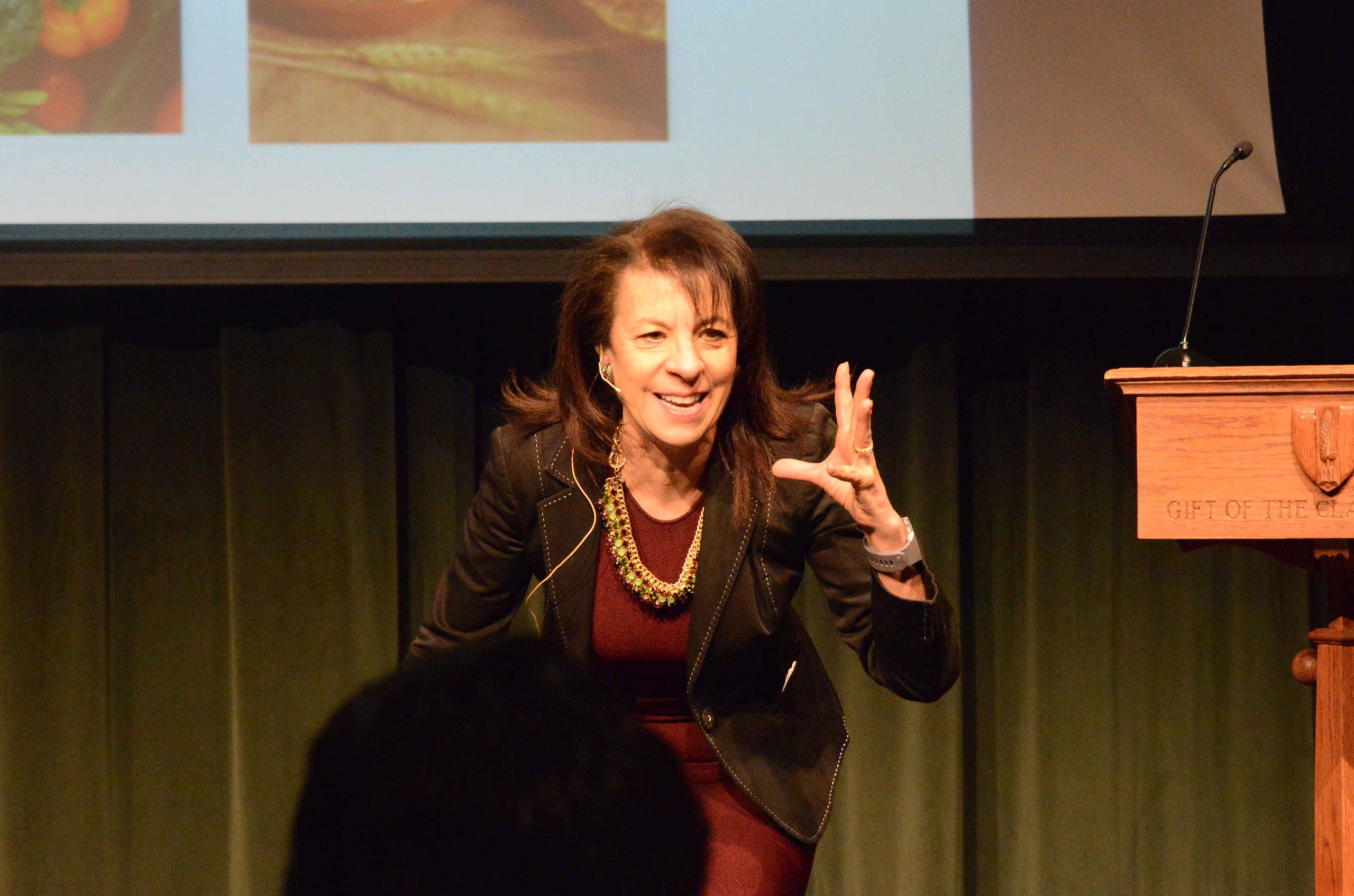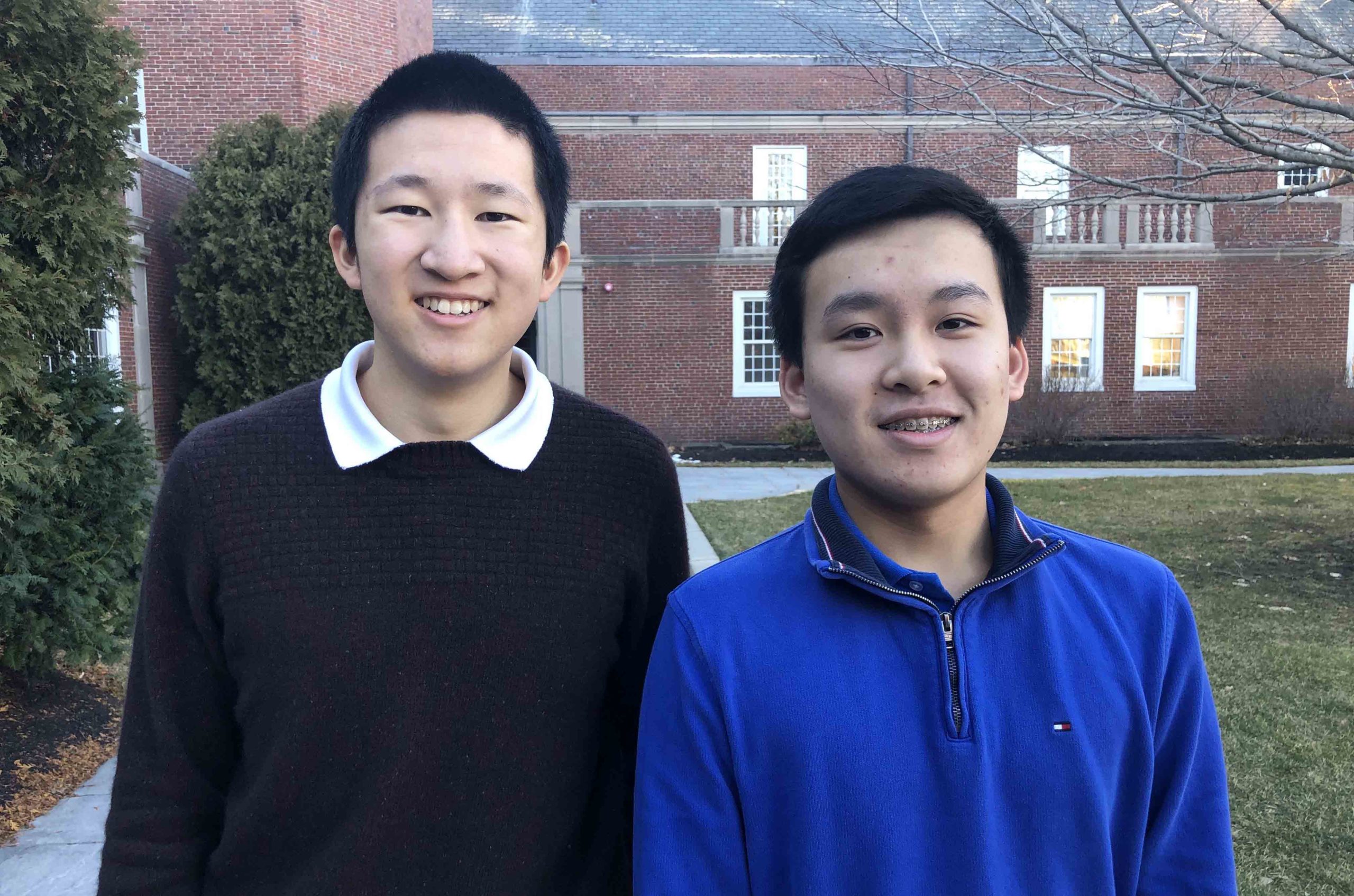On February 13, Kate Walsh and Bill Walczak—two prominent members of the Boston health care community—spoke to students and faculty in Hall, as the third part of a series focused on the challenges, and potential solutions, related to homelessness and poverty. Both Ms. Walsh and Mr. Walczak have directed their considerable talents over many decades to focusing on the healthcare needs of those who, because of their circumstances, find themselves without the resources to avail themselves of quality healthcare.
Kate Walsh is president and CEO of the Boston Medical Center (BMC) health system. Boston Medical Center—which has had a role in caring for City residents since 1855—is today a 514-bed academic medical center and full-service hospital; 80% of BMC patients are publicly insured, making BMC New England’s largest safety net hospital.
Bill Walczak—regarded as a pioneer in healthcare and community activism in Boston—is co-founder of the Codman Square Health Center, a multi-service center, which, since its founding in the 1970s, has served more than 20,000 individuals, providing quality medical services in one of Boston’s most deprived communities.
“One of the things I want you to reflect on this morning is the definition of health,” Mr. Walczak began. “We have a confusing way of thinking about health in the United States, and how it’s reflected creates a fundamental problem for actually achieving health.” Mr. Walczak founded the Codman Square Health Center when he was 20 years old. At the time, Codman Square in Dorchester was a collapsing neighborhood—rife with violence, arson, and a sense of hopelessness. Never having been trained as a healthcare provider, Mr. Walczak had a very different attitude about what was needed in the community and how to make it happen.
“The big issue wasn’t really healthcare, it was the poverty that the community was facing. We were trying to achieve health, but in reality we were trying to redevelop the community and offer opportunity for people living there, most of whom were very, very poor.”
As the leader of a health center, Mr. Walczak knew he also had to address the rampant issues of violence, drugs, crime, poor educational attainment, and lack of opportunity in general. “If you don’t do something about the root issues, you’re really not doing anything about health,” he asserted. While Codman Square Health had physicians, dentists, social workers, and psychiatrists, they committed to focusing also on community development, economic development, opportunity, and education.
Forty years later, Codman Square Health Center offers medical and dental care, nutrition resources, public health education, tax and credit clinics, a fitness center, and a nonprofit grocery store selling only healthy food. Realizing that the best way to help lift people out of poverty was through education, Codman Square Health Center also participated in the founding of two schools in Boston: the Edward Kennedy Health Careers Academy and Codman Academy.
“One of the most important elements of a community is hope,” concluded Mr. Walczak. “If people don’t have hope, they don’t do anything to improve their lives or their communities. One of the most important things that we can do is work on issues that make a difference in people’s lives.”
Ms. Walsh continued with her presentation expanding upon the same theme: “To improve healthcare outcomes across this country, we need to create a more equitable society. Many hospital executives talk about great cures to diseases, or better outcomes in cancer care, —which are all very important—but at BMC, much like at Codman Square Health Center, we are attacking the disease that is poverty. It’s very hard to care about your hypertension if you’re living in your car, or sleeping under a bridge, or worried about paying your rent.
“And we know we can’t do this ourselves. Part of what my job is developing partnerships within the community to get the results we all want. Doctors can help fix your ear infection, or diaper rash, or congestive heart failure, but most hospitals don’t ask patients about food, heat, school, finances, housing, money. We need to develop and maintain partnerships within our community and really listen to the people we’re trying to serve. Lots of times, big complicated organizations—especially hospitals, loaded with experts—don’t listen to patients as carefully as we need to.”
BMC has developed many community partnerships, including with a group called Community Farms, which has delivered more than 5,000 pounds of food for the hospital’s food pantry and for patient and employee meals. Street Cred is a program running four nights a week during tax season in BMC’s pediatric clinics, helping patients’ families complete their taxes. BMC is also directly investing in housing development in struggling City neighborhoods.
“Rather than looking away from the problem, our organizations are trying to tackle it, head on,” concluded Ms. Walsh. “I encourage you, as you think about your future, to be part of an organization that says, ‘Yeah, I’m going to try to tackle that.’ Because the hardest problems are the ones that actually need to be solved.”
Ms. Walsh’s and Mr. Walczak’s presentation was the third in a series focused on homelessness and poverty, instituted as part of Roxbury Latin’s 375th anniversary celebration. Honoring a mission characterized by concern for others—a mission fundamental to Roxbury Latin since its founding—students and faculty commit their time, talent, and treasure each year to organizations or efforts that aim to ease the burdens of others. The first two speakers in this series—Matt Desmond, author of Evicted, and Tina Baptista, with whom students built beds to donate to children in need—offered moving insight into the experiences of the hundreds of thousands of people in our country without a reliable and safe place to lay their heads at night. Mr. Desmond—and also Mr. Bo Menkiti, Class of 1995 and founder and CEO of the Menkiti Group, as the year’s Wyner Lecturer—reminded students that access to healthcare is a critical element in any thriving community.










